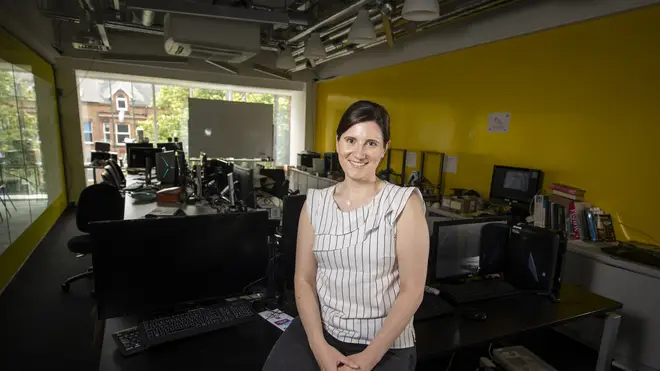
Iain Dale 7pm - 10pm
24 June 2021, 07:04

The cyber seed produces innovative designs for products ranging from aircraft parts to medical devices.
The first-ever manufacturing cyber seed has been conceptualised by a team which involves academics from Belfast.
The cyber seed is described as being capable of producing innovative designs for products ranging from aircraft parts to medical devices.
It was designed by a team of experts from Queen’s University Belfast, Loughborough University and the University of York to allow scientists to generate bespoke new products suited to the local environment and available materials at the tap of a button from anywhere in the world.
The team has been awarded £7.3 million by the Engineering and Physical Sciences Research Council (EPSRC) for the project.
Professor Mark Price, from the School of Mechanical and Aerospace Engineering at the Queen’s University Belfast, said the research could transform how design and manufacturing organisations work, making manufacturing more accessible to many sectors, efficient and distributed.
The cyber seed is made up of “genes”, which are simple text descriptions of a product’s design characteristics and attributes, such as size, colour and density. The genes are read by special software which then links up with a CAD (computer-aided design) system to create a 3D model of the design, ready for manufacture and realisation.
“This cyber seed grows within a computer model just like a stem on a plant does in nature – it gets longer and longer as it grows,” Mr Price said.
“The seed generates cells which divide and copy to build up very complex shapes but they only become viable when they meet certain conditions, in the same way nature works.
“For example, if we have a seed for a bicycle and it is being produced by a researcher in Belfast for a customer in Belfast, the available materials may be metal and the end product would be made of aluminium.
“However, if the same researcher in Belfast is using the cyber seed to create a bicycle for a customer in Asia but the only available material was bamboo, the seed would pick up on this and adapt the design so that a bamboo bicycle could be produced instead.”
The researchers hope it will unlock a wealth of opportunities for the medical and bioengineering sectors to generate patient-specific devices or therapeutic specimens that are customised, and crucially the cost and resource needed to manufacture them will not be prohibitive.
Dr Imelda Friel said computer scientists and engineers have been working together on the project to reimagine engineering design.
She said they were inspired by nature, describing how a tree can be grown from a seed for the environment it is in, but no two trees are the same.
“These cyber seeds will have inside them what we term design genes, we’ll take these design genes and put them into our system and we’ll define the environment that it’s in, and each of these design seeds will be able to produce a product that is uniquely defined for that environment that it is in,” she said.
“Traditional engineering design is quite a linear operation, it involves lots of different people, design engineers, simulation engineers and it requires a lot of time and software and knowledge in order to create products, and a lot of the time these products are iterations of the same form, so what we’re trying to do is a create a system that will allow for emergence in design that will create products that are so well defined because the system they have been in has included all the information necessary for the design to emerge in that particular bespoke environment that it is in.”
RIED will be supported by Airbus, Glen Dimplex, ITI, Rolls-Royce, Denroy, SAM UK, MTC, Far UK, OxMet, Bombardier (Spirit Aerosystems) combining the significant research background of the academic institutions with the industrial pedigree of the partner companies.